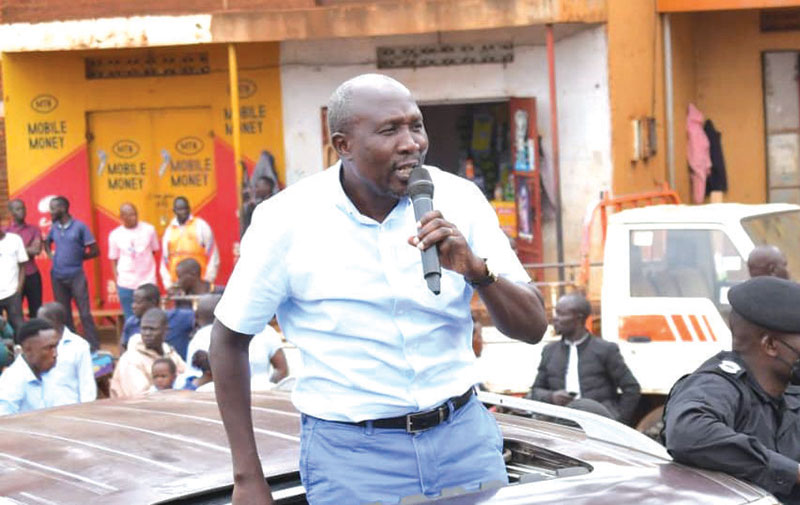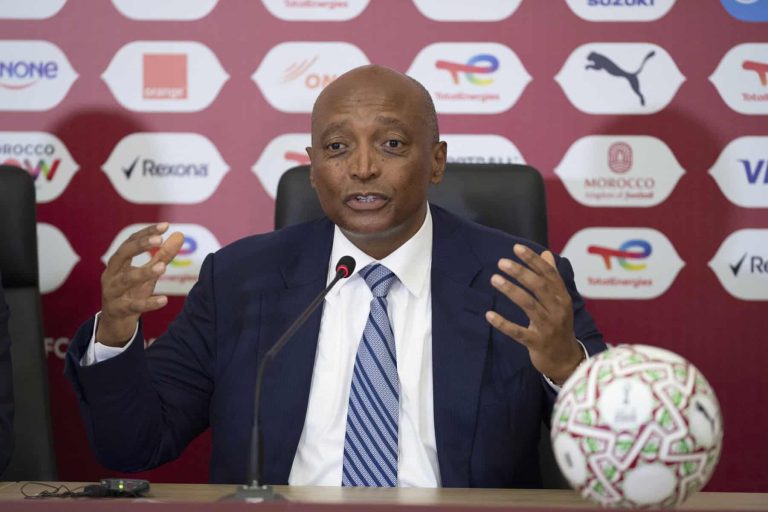
In Kitgum, Nathan Nandala-Mafabi spoke not in slogans, but in numbers.
He talked of trillions lost to corruption, of children dropping out of school hungry, of farmers abandoned and roads left to rot. His voice was determined to prove that Uganda’s poverty is not a curse of fate, but a crime of leadership.
From broken hospitals to unpaid teachers, from stolen cows to potholed highways, Mafabi’s campaign cuts through Uganda’s political noise with one defiant message: the country is rich, but its people are being robbed.
“Our budget is Shs 75 trillion,” Mafabi told listeners on Mighty Fire FM later that night. “In ten years, that’s Shs 750 trillion. Roads, hospitals, and schools each need about Shs 10 trillion. But the same problems remain. That means there’s a pipe swallowing our money—and that pipe is corruption.”
It was classic Mafabi: blunt, numbers-driven, and anchored in the populist language of accountability. The Forum for Democratic Change (FDC) presidential candidate, an economist and long-time anti-graft crusader, outlined a sweeping plan that reads as both a manifesto and a moral reckoning.
He pledged to recover at least Shs 10 trillion annually lost to corruption and redirect it into Uganda’s 72,000 villages. “If I stop the theft,” he said, “I’ll have Shs 10 trillion saved. I’ll give each village Shs 100 million—that’s Shs 7.2 trillion, and still remain with a balance.”
For Mafabi, governance is less about grand promises and more about plugging leaks. “The problem isn’t money. It’s theft. Once we stop the bleeding, Uganda will heal,” he said.
In Kitgum, a region that has felt the economic scars of conflict and neglect, Mafabi’s talk of reviving agriculture resonated deeply. He vowed to rebuild cooperative unions, revive the Produce Marketing Board and the Cooperative Bank, and restore Uganda’s once-thriving cotton and coffee sectors.
“Northern Uganda has the most fertile land,” he told a cheering crowd at Christ the King grounds. “We shall bring back the white gold, cotton, and ensure farmers get warehouse receipts and access credit through cooperative banks.”
Ten per cent of the national budget, he promised, would go to agriculture. Farmers would be insured against losses, and post-harvest storage facilities would be built to reduce waste. Education, too, stood at the heart of his speech. Mafabi took aim at unequal pay between science and arts teachers, calling it divisive and illogical.
“A mathematics teacher teaches in English because they were taught by an English teacher,” he said.
“How can one be paid more than the other?” He vowed to raise teachers’ salaries, provide housing, and launch a national school feeding program to combat the high dropout rate. “Eighty per cent of our children leave school before Primary Seven because they go to class hungry,” he said.
“No child should study on an empty stomach.” In health care, Mafabi pledged to upgrade all regional referral hospitals to national level and end “medical tourism,” which drains billions from the public purse.
“We have Ugandan doctors treating people in South Africa and Kenya,” he said. “We’ll pay them well and equip hospitals so they serve our people here.”
He also linked the country’s rising mental health crisis to economic despair. “Gulu hospital used to see five mad people a year,” he said.
“Now it’s 700 a month. That shows this madness is coming from hunger, trauma and hard life.” To Uganda’s restless youth, especially boda boda riders, Mafabi offered a practical plan: reduce motorcycle prices to Shs 2 million, payable over five years. “That means paying Shs 1,000 a day,” he said.
“From boda to taxi to lorry—that’s how you build local business.” He argued that over-taxation and corruption are suffocating the informal sector.
“Boda riders borrow Shs 5 million and repay Shs 9 million. That’s theft through policy,” he said. In the Acholi sub-region, Mafabi revisited one of Uganda’s most painful wounds—the loss of cattle during the LRA war and earlier conflicts.
He accused “powerful individuals” of orchestrating the plunder to later seize land.
“Why are they giving you five cows per family?” he asked, in reference to President Museveni’s recent promise.
“Suppose you lost 1,000 cows thirty years ago, that would be 10,000 today. We’ll compensate you at current market value.” His message was both economic and moral: the state owes citizens restoration, not charity.
Mafabi’s arrival in Kitgum was delayed by crumbling roads, and he used the moment to drive home his point.
“If these roads were tarmacked, we’d have been here earlier,” he said. “Where is it written that the people of Acholi shouldn’t have tarmac? You pay taxes on sugar, salt, soap and beer but get nothing in return.”
He accused the ruling government of looting over Shs 10 trillion annually, funds he said could have transformed Uganda’s infrastructure.
“When I chaired the Public Accounts Committee, you saw how we fought corruption,” he said. “That money should have built your schools, hospitals, and roads.”
Then came his most direct challenge to President Museveni: “What Museveni couldn’t do in forty years, he can’t do in five,” Mafabi declared to loud cheers.
“He gives you T-shirts and billboards—but what do you eat after that?” He accused the regime of turning elections into transactional theater. “When you sell your vote, you’re selling your road, your school, your dignity,” he warned.
“Lend us your vote for five years and see the difference.” Mafabi’s campaign, anchored in anti-corruption, equitable growth, and moral accountability, has struck a populist chord. Yet it also faces a steep climb in a political landscape long dominated by incumbency and patronage. Still, his message carries the rawness of lived frustration.
“Uganda belongs to all of us,” he said in his closing remarks. “We feel so bad that a few people are enjoying on behalf of millions, while the rest of us have become beggars in our own country.”



